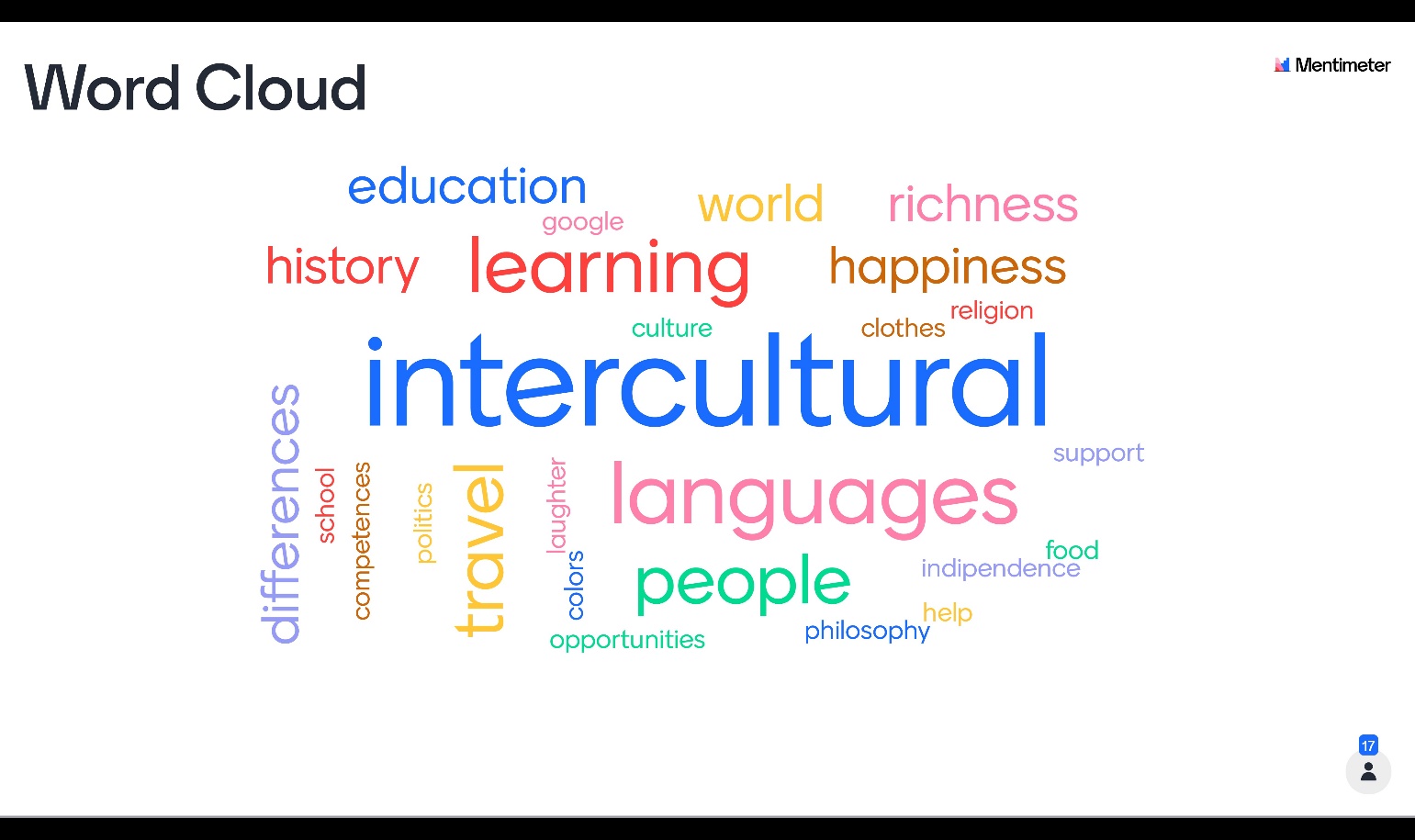Aim: Intercultural learning.
Key Words: intercultural, long life learning, competences.
Prior Knowledge: None.
Introduction
What is intercultural learning?
Intercultural learning refers to the process of acquiring knowledge, attitudes and skills that are needed when interacting with different cultures. Intercultural learning is an important practice that can solve global challenges and work in the direction of an inclusive society, where people with different backgrounds live peacefully together.
What is intercultural learning made of?
Intercultural competence consists of attitudes, skills and knowledge. The first person that talked about intercultural learning is Darla k. Deardorff, she is an experienced cross-cultural trainer
- Attitudes: of respect, openness, curiosity and discovery. Openness and curiosity mean to take risks and to move beyond one’s comfort zone, being aware of one’s own ignorance. In communicating respect to others, it is important to demonstrate that others are valued.
- Skills: observation, listening and evaluating. The aim is to minimize ethnocentrism. Analysing, interpreting, and relating are needed in order to develop critical thinking.
- Knowledge: cultural self-awareness, culture-specific deep cultural knowledge, including understanding other world views, and sociolinguistic awareness.
Intercultural learning in BIBLIODOS
The best way to understand people and their culture is by learning their own language.
Bibliodos project aims to make European literature and heritage accessible to migrants and adults with little schooling. Through the reading of classics from all over Europe, people can learn both the language and the culture of the countries.
Bibliodos’ team is made of six partners from five European countries: France, Italy, Greece, Cyprus and Belgium, but the literature works were selected from all over Europe.
Moreover, thanks to the pedagogical dossier section, each work can be contextualized in the time it was written (political period, social organization) and in author’s life style.
All these materials allow the whole intercultural process: analysing, observing, discovering and knowing in order to become empathetic and open to what is different.
Desirable Outcome
At the end of this practise sheet, you will be able to:
- Know what intercultural competence is;
- Know what is necessary in the intercultural learning process;
- Searching in the reading of a book the cultural and linguistic aspects that allow an intercultural learning process.
Exercise
Create a mind map of a book or film you like:
- Think of your favorite book or movie.
- Take a sheet and some colored pens: write in the middle the title of the book or of the movie; around it write the cultural aspect of it, for instance, when and where it is set, the language, the character of the protagonists…
- Think about the knowledges that you have learnt, the feelings you have tried and the different aspects from your reality that can enrich you.

 30 minutes | For learners
30 minutes | For learners